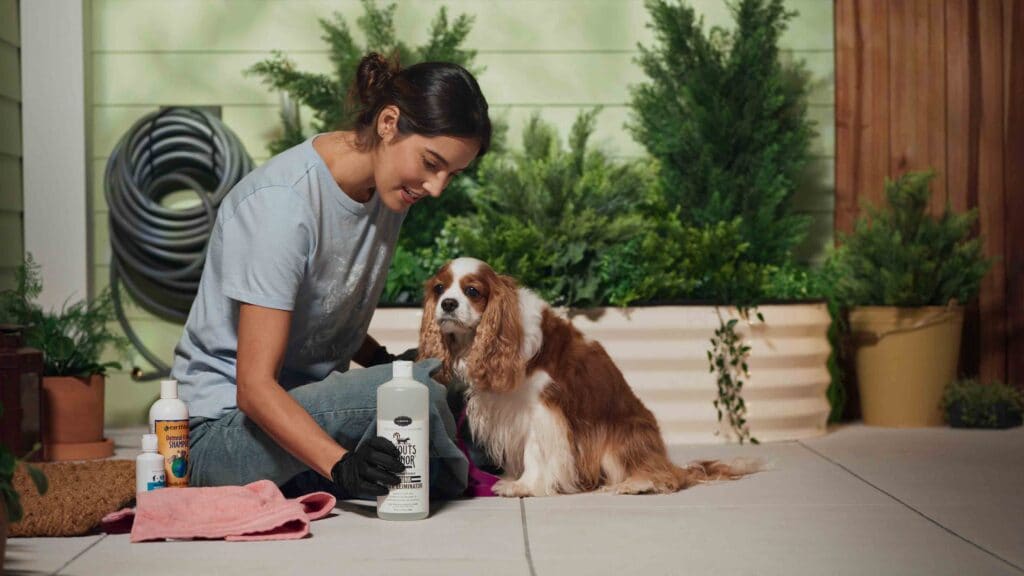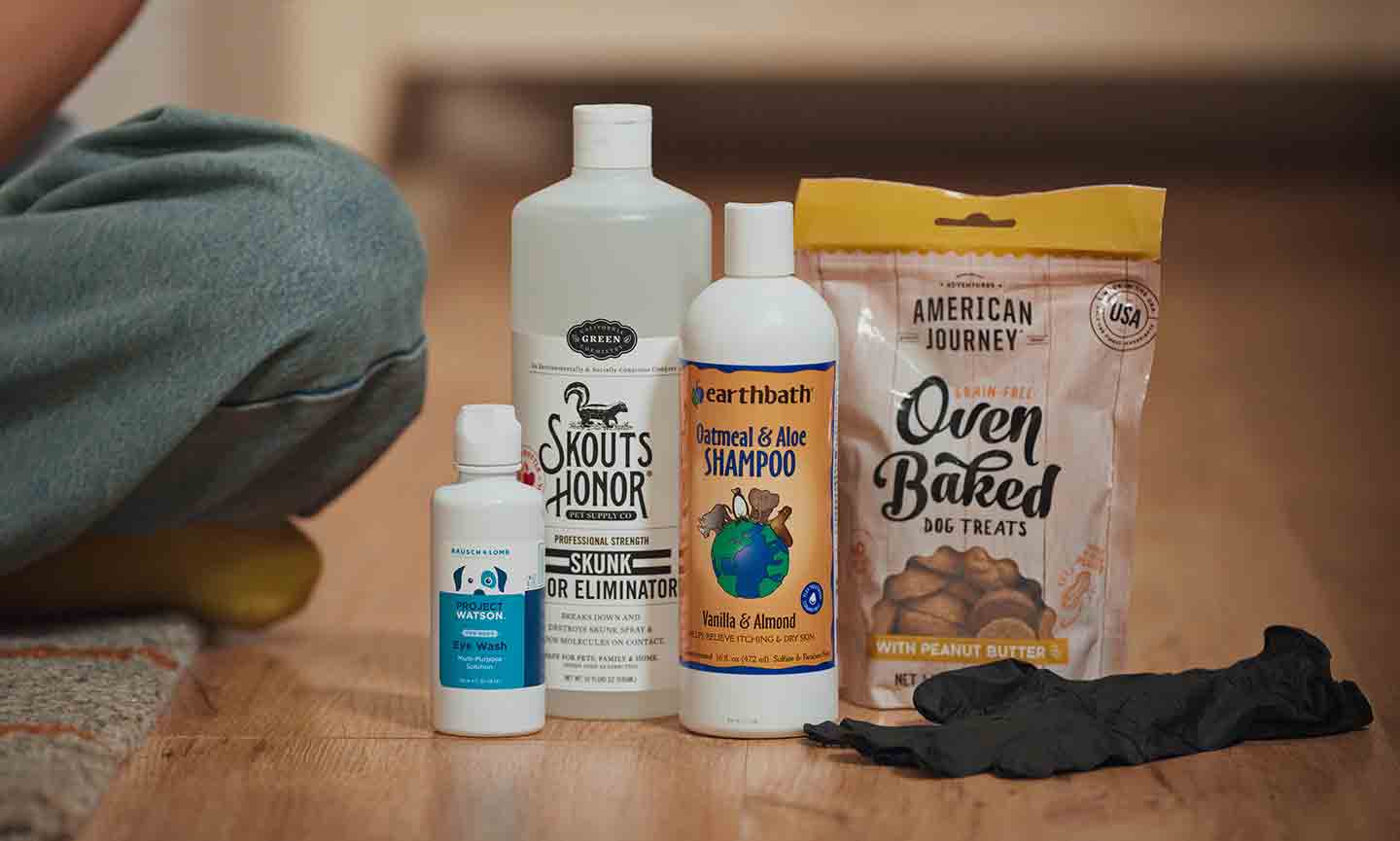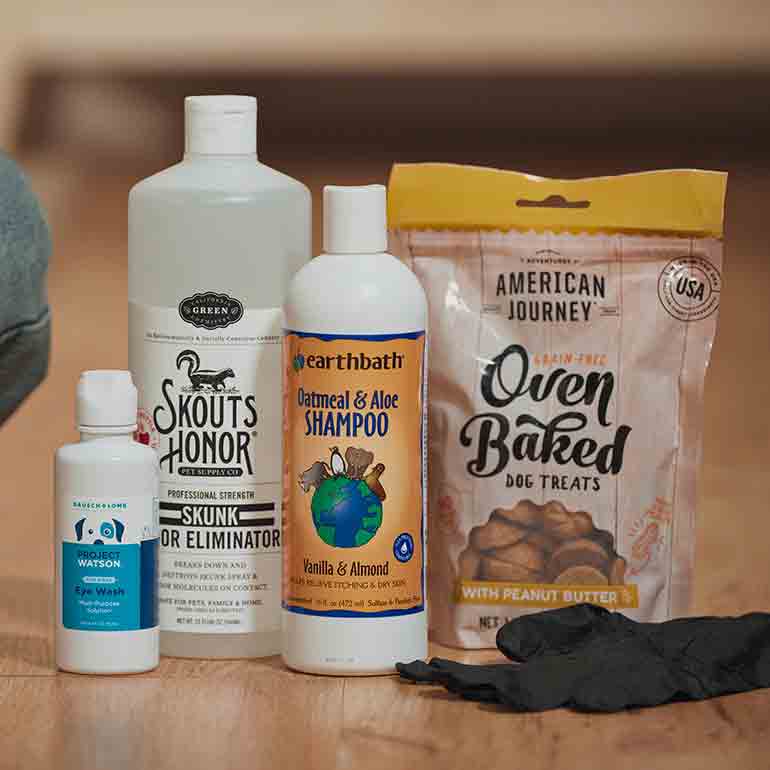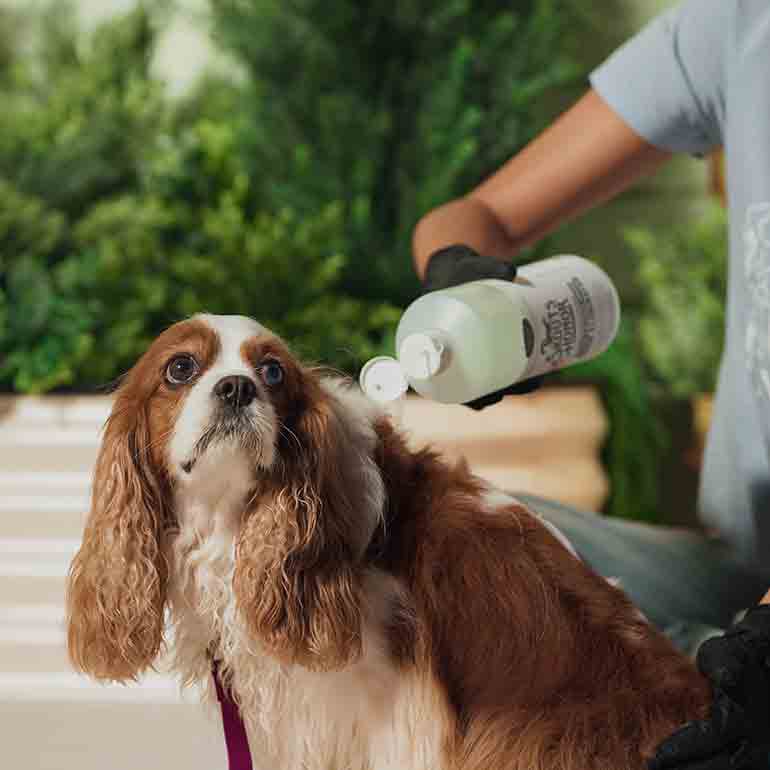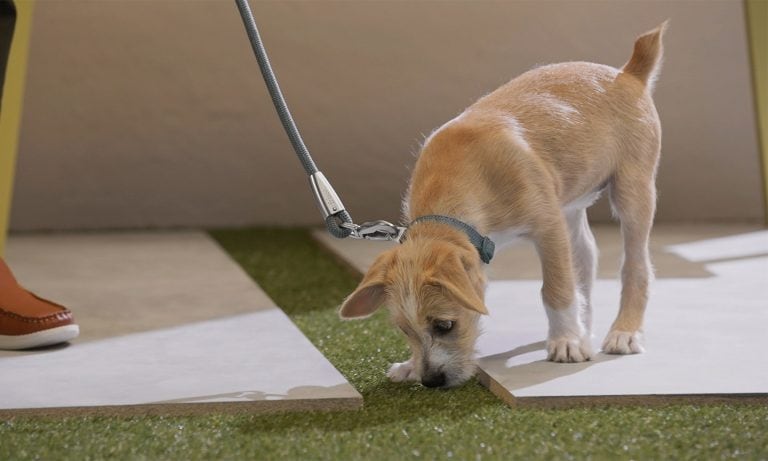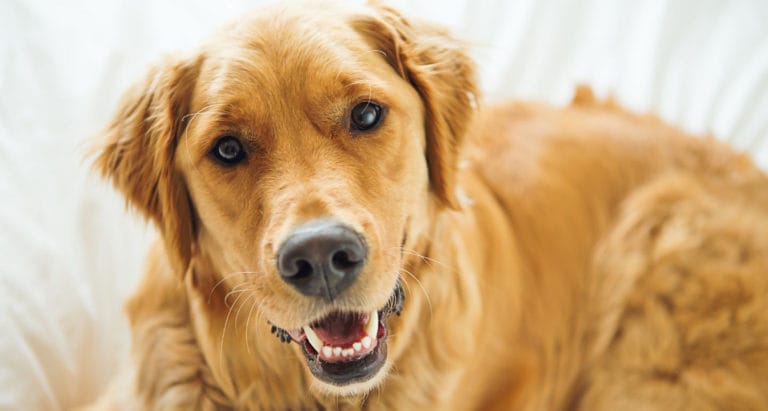What To Do When a Skunk Sprays Your Dog
The chemicals produced by skunk sprays are called thiols—incredibly foul-smelling molecules that irritate lungs, nasal passages, and eyes, says Kimberly Boudwin, VMD, chief medical officer at Providence Animal Center in Media, Pennsylvania.
Skunk spray doesn’t just smell awful; it can also cause health problems for your pup. It irritates their skin, and can cause eye problems like swelling, redness, and—in serious cases—even temporary blindness. Skunk spray that gets in your dog’s mouth may cause nausea, drooling, and vomiting. A rare complication (typically associated with a heavy spray or multiple sprays) is severe weakness from the spray damaging your pup’s red blood cells.
For these reasons, it is important to keep a close eye on your pup for about three days after their exposure. Take your dog to the vet if you notice any of these signs or if they are not feeling like themselves.
In the meantime, if you’ve found yourself in a stinky situation, do not simply hose your dog with water, as this can actually worsen the problem since water traps the odor onto your dog’s fur. Instead, follow these steps on what to do if a skunk sprays your dog.
1Gather Your Supplies
- Rubber gloves
- Old clothes
- Sterile eye wash
- Dog shampoo
- Dog treats
- Dog de-skunking cleaner
–or– - Ingredients for a DIY de-skunker, including:
- Cool water
- Hydrogen peroxide
- Baking soda
- Dish soap
- Warm water
2Contain Your Dog (and That Smell)
Bring your dog to a contained outdoor area. It’s best to keep your dog outside to avoid bringing the smell inside your home. A fenced backyard is perfect. You can also leash them and tether the leash to something sturdy—just be prepared to replace that leash, since it’s likely to get skunk spray on it.
Now’s a good time to put on a pair of rubber gloves and garments that are OK to get dirty too.
3Rinse Your Dog’s Eyes
If a skunk sprays your dog in the face, rinse their eyes right away. Skunk spray is very irritating to this sensitive area.
“Dog’s eyes can be rinsed out using a saline eye flush with no additives in it,” says Amber Karwacki, DVM, a veterinarian with Heart + Paw in Philadelphia. Angels' Eyes® Dog & Cat Eye Wash is perfect for this task. “If the eyes are red or irritated after flushing with saline, you should have your dog seen by a vet to make sure no damage occurred.”
Remember not to get your dog wet anywhere but the area around their eyes, since that can actually worsen the skunk smell.
4Rinse Their Mouth
Next, take care to rinse your dog’s mouth. “The mouth should be flushed out with copious amounts of cool water to help get the taste out of their mouth,” Dr. Karwacki says.
Ears are prone to infection, so if your dog was sprayed in or around the ears, don’t try to rinse or clean the area yourself. Instead, take your dog to the veterinarian to address the issue.
5Clean Your Dog’s Coat
You’ll need a de-skunking solution, aka a cleaner specifically designed to remove skunk smell, like Nature's Miracle® Odor Control Formula Shampoo. Carefully follow the directions on the product packaging when applying it to your dog.
Alternatively, Dr. Boudwin recommends creating a homemade solution to de-skunk your dog’s fur. Her preferred recipe:
- 1 quart of 3% hydrogen peroxide
- 1/4 cup of baking soda
- 1 teaspoon of dishwashing soap
- 1 quart of lukewarm water
Mix all ingredients in a large bucket and apply the solution to dry dog fur.
“Wash your dog thoroughly with this solution, making sure it gets into your dog’s fur as much as possible and doesn’t just rinse off,” Dr. Boudwin says. “It needs to contact as much of the chemical as possible to inactivate the smell. Let it sit for five minutes.” (Don’t forget their paws!)
Try to keep the solution away from your dog’s eyes since it can be irritating. You’ll also probably need to repeat this process several times until the skunk smell has completely neutralized.
Do not store this solution in a closed container. The ingredients will create a chemical reaction that can possibly explode. Also, peroxide is used in hair dye to lighten hair, so this solution will cause discoloration of black and brown dogs’ fur, Dr. Boudwin says. (The discoloration will go away over time as your dog sheds their fur.) It will also bleach towels and fabric, so be mindful of what you are using while bathing your dog.
6Shampoo Your Dog
For an extra clean, nice-smelling finish, follow up by bathing your dog some regular dog shampoo, like Earthbath® Oatmeal & Aloe Dog & Cat Shampoo. Get it nice and sudsy, then rinse the pet shampoo with warm water. Towel-dry when finished. You can reward your pup with tasty pet food or treats for completing this wash-a-palooza.
7Monitor Your Dog
Once you’ve removed most of the smell, it’s OK to let your dog inside your home. But your job isn’t done yet. It’s important to keep monitoring your dog for signs of illness.
In rare cases, the thiols in skunk spray “can damage your dog’s red blood cells and cause Heinz body anemia,” Dr. Boudwin says. Dogs who have been sprayed directly in the face should be monitored for 12 hours for signs of anemia, including:
Veterinarian treatment for skunk spray often includes monitored hospitalization and potentially a blood transfusion. Again, this is rare, but dog parents should know this is a possibility and be in contact with their vet if any of these signs occur. Also see your vet if your dog’s ears, eyes, or mouth appear irritated.
Be Prepared for Future Skunk Encounters
To prevent your dog being sprayed by a skunk in the future, monitor your pup when they’re outside; keep them in fenced areas; and stick to leash-walking. Skunks spray as a defense mechanism, so if your dog chases this black-and-white critter, there’s a good chance they’ll get juiced again.
Keeping commercial de-skunking spray on hand can help you remedy the issue more quickly in the event your dog does get sprayed by another skunk.
FAQs About De-Skunking Dogs
Q:Does tomato juice get rid of skunk smell?
A:No, tomato juice won’t de-skunk your dog’s fur—not only does it not work, but it can also be messy. Stick to a commercial skunk odor remover or DIY solution of hydrogen peroxide, baking soda, dish detergent, and water.
Q:Does Dawn® dish soap get rid of skunk smell?
A:On its own, dish soap will be ineffective at removing skunk smell. But using dish soap with hydrogen peroxide, baking soda, and water is one DIY solution for de-skunking your pooch. Combine 1 quart of 3% hydrogen peroxide; 1/4 cup of baking soda; 1 teaspoon of dishwashing soap; and 1 quart of lukewarm water in a large bucket and apply to dry fur.
Share:
